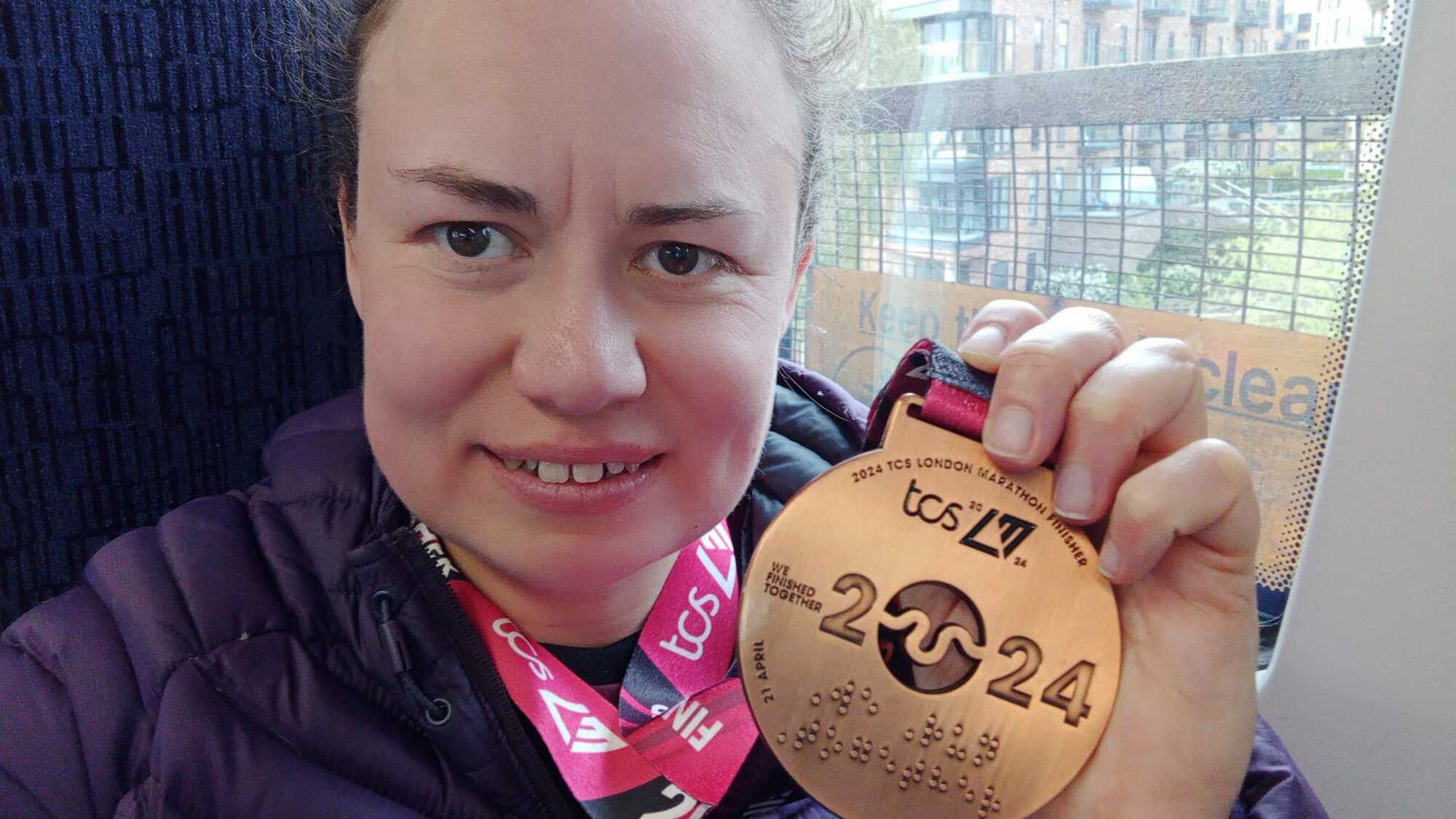Moving more for your mental health

Did you know that recent research suggests it could take as little as 15 minutes and 9 seconds of activity to uplift the mind?
Looking for ways to build more movement into our lives is more important now than ever as activity levels decrease and poor mental health is on the rise.
It’s one of the reasons the theme of this year’s Mental Health Awareness Week is ‘moving more for your mental health’; crucially, highlighting that ‘moving’ doesn’t necessarily have to mean extreme athletics, but just bite sized chunks of activity that suits you.
I write this in the weeks following my first London marathon experience, which has meant my focus for nearly six months has been on running more, then following a structured 16 week programme in the lead-up to the event itself.
While it’ll be nice to not feel like I’m thinking about running all the time, it’s important to plan for the post marathon blues and the sudden stop in activity if you want to give your body time to properly recover, or have an injury you’ve picked up that needs some rest.
The link between physical activity and mental health doesn’t surprise me as I noticed years ago what impact being active had on my mental health. I often got comments about how ‘good’ I was to exercise so regularly and to keep fit - but the reality is I’ve known for a long time how much better being active makes me feel and, actually, the thought of too long resting is quite a scary one for me.
But moving more doesn’t have to be about running. After a couple of post-marathon days of days of relatively little movement, I went for a swim, got back to gardening and joined my running friends for a walk instead. It’s all still movement, and it all still helps in lifting mood.
Knowing the impact being active has on my own mental health is one of the reasons I have always been so passionate about helping and encouraging to build more active lives and set themselves challenges, so they too can see the benefits.
I enjoy most forms of sport and exercise, even a muddy cross-country run, or a run in the rain (quite lucky really considering the amount of rain I encountered in this year’s marathon training!) Throughout school and college I got the opportunity to try so many different activities and could always be relied on to make up the numbers if a team was a player short - sometimes with varying levels of success!
That said, movement doesn’t have to be structured, and some of the most fun ways to move come from the unstructured active play with my nieces - splashing around in the swimming pool, chasing each in the park, jumping waves at the beach or on the trampoline in the garden are guaranteed to make us all laugh.
Embracing your inner child and not caring about how you look can work wonders in lifting your mood, and maybe it’s these activities are the things we should all be looking to do more of.
In March this year, sports brand ASICS launched their “Little Reminders” campaign. It followed a piece of research that found 92% of 6-11 year olds enjoy exercise and that 77% of children said the main reason they exercise because it’s fun - whereas 77% of adults see exercise as a chore. The Little Reminders Workout - a guide made by children for adults - aimed to remind us to exercise for how it makes us feel and not how it makes us look.
The research also highlighted the fact that it takes just 15 minutes of activity for people to feel a positive benefit on their mood - which all feels infinitely more achievable than a marathon!
For me being active is also great opportunity to spend time with family and friends. Sometimes that might mean running or playing sport, but often it can just mean going for a walk and a good talk.
So, this Mental Health Awareness Week (and beyond!), why not:
- Take some time to think about the little ways you can add 15 minutes of movement to your daily life
- Explore the opportunities that are around you ??" if you don’t enjoy it you won’t stick to it so try something new
Want to find out more about the links between activity and mental health?
Log into our new webinar Move Your Way to Better Mental Health on Tuesday 14th May 12:30-13:00.
Jo Grant is LionHeart’s training and wellbeing projects manager. With a background in physical health and wellbeing, she joined LionHeart in 2016, with an original brief to lead on a major mental health project, and now works more widely on developing proactive wellbeing services and training to support RICS professionals at all stages of their career. She recently ran her first London Marathon, raising money for LionHeart’s 125th anniversary year in the process.



